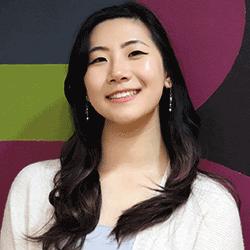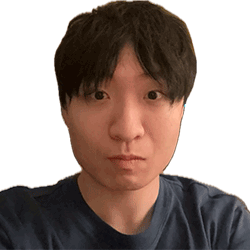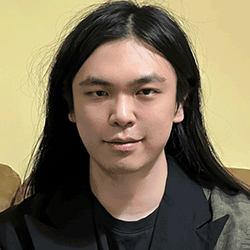Connie Chau, Ziyi Guo, and Gefei Tan Earn 2025 Global Google PhD Fellowships
Google honors early-career researchers poised to shape the future of technology
Northwestern Engineering graduate students Connie Chau, Ziyi Guo, and Gefei Tan have earned 2025 Global Google PhD Fellowships, a prestigious honor awarded to the most promising young academics in the world.
“I am delighted that three of our amazing PhD students were recognized with this highly competitive honor,” said Samir Khuller, Peter and Adrienne Barris Chair of Computer Science at the McCormick School of Engineering.
Created to recognize outstanding graduate students who are conducting exceptional and innovative research in computer science and related fields, the Google PhD Fellowships support PhD candidates who are poised to shape the future of technology.
“We are excited to welcome this global cohort and look forward to partnering with them as they continue to become leaders in their respective areas,” Google said in statement.
In addition to receiving up to two years of funding towards education costs (tuition and fees), living expenses, travel, and personal equipment, the students are matched with a Google Research Mentor who can provide feedback and help connect them to Google’s research network.
Connie Chau uses community-based and participatory design research methods to co-design technologies
 Chau aims to help the helpers.
Chau aims to help the helpers.
Alongside advocates from The Network: Advocating Against Domestic Violence, Chau is building a collaborative just-in-time adaptive intervention (co-JITAI) tool to provide timely, adaptive, and personalized care to frontline workers supporting clients experiencing traumatic or violent situations. The tool will provide coping support and recommendations to help alleviate symptoms that mirror post-traumatic stress disorder (PTSD) and reduce feelings of burnout.
The support of the Google PhD Fellowship in human-computer interaction (HCI) enables Chau to dedicate more time and resources towards refining and testing her prototype. She plans to deploy the co-JITAI tool in frontline workers’ real-world organizational contexts to evaluate its feasibility, understand barriers to use, and explore users’ perceptions of intelligent technologies as well as how they navigate privacy and safety using these technologies.
“It is a great honor to have been awarded the Google PhD Fellowship, as I’ve put much time, energy, and care into work that not only advances scientific knowledge but also aims to empower individuals and their communities to engage in the design of technologies that better align with their real-world needs and values,” said Chau. “Given the importance of public scholarship, earning this fellowship is a great pathway to connect with other researchers and practitioners to collaboratively make a positive impact on society.”
Chau is a fifth-year PhD student in Northwestern's Technology and Social Behavior program and member of the NU-PATH Lab, advised by Maia Jacobs, assistant professor of computer science at Northwestern Engineering and assistant professor of preventive medicine at Northwestern’s Feinberg School of Medicine.
Chau was named a 2025 Rising Star in EECS, earned a Best Paper Honorable Mention Award at CHI 2025, and was awarded a Health Equity Scholars Program Scholarship by AcademyHealth. Prior to joining Northwestern, Chau earned a master's degree in HCI and a bachelor’s degree in humanities and art with a second major in HCI, all from Carnegie Mellon University.
Ziyi Guo investigates AI for system security and techniques for vulnerability exploitation and repair
 Guo, a third-year PhD student in computer science, won a Google PhD Fellowship in privacy, safety, and security.
Guo, a third-year PhD student in computer science, won a Google PhD Fellowship in privacy, safety, and security.
He aims to develop a comprehensive understanding of the advantages and disadvantages of AI for system and software security, including examining the capabilities of deploying large language models for offensive and defensive security strategies.
“We hope our insights can facilitate progress in both fields: security and AI,” Guo said.
Guo is excited to gain perspective from his Google Research Mentor on the types of impactful research questions industry is prioritizing.
Guo is co-advised by professor of computer science Yan Chen with Xinyu Xing, associate professor of computer science at Northwestern Engineering. Guo earned a bachelor’s degree from Sichuan University in 2023.
Gefei Tan designs efficient cryptographic protocols to make AI models provably trustworthy and safe
 Tan, a third-year PhD student in computer science, won a Google PhD Fellowship in privacy, safety, and security. His research focuses on a critical challenge in AI: how can we trust black-box machine learning models without seeing their proprietary training data or training process?
Tan, a third-year PhD student in computer science, won a Google PhD Fellowship in privacy, safety, and security. His research focuses on a critical challenge in AI: how can we trust black-box machine learning models without seeing their proprietary training data or training process?
To address this challenge, Tan has been working on a new zero-knowledge proof framework, which shifts the model verification paradigm from proving the entire training process step-by-step to directly certifying the optimality of the final model.
“This proof-of-optimality method is not only much more efficient, but it also prevents attacks where an adversary could use a crafted random seed to inject bias into the model, a vulnerability that prior methods failed to detect,” Tan said. “Our new approach provides a direct, quantitative guarantee on the final model quality.”
With the support of the fellowship, Tan aims to advance this foundational work by building a practical cryptographic toolkit that allows tech companies to prove their production models are safe and effective without revealing private data or proprietary model parameters. He plans to design new cryptographic techniques to make verification efficient for more complex, large-scale architectures as well as expand the framework to detect more sophisticated flaws, such as hidden backdoors and other vulnerabilities.
“I am incredibly honored to receive the Google PhD Fellowship,” Tan said. “My research aims to build a future where machine learning models are not just powerful, but also provably trustworthy and safe. The Google Fellowship validates that this is a shared goal with researchers at Google, and I'm looking forward to the collaboration to help make privacy-preserving, verifiable machine learning a practical reality.”
Tan is co-advised by Xiao Wang, associate professor of computer science at Northwestern Engineering, and Ning Luo (University of Illinois Urbana-Champaign), a former Northwestern Computer Science postdoctoral fellow. Tan earned a bachelor’s degree in computer science from Beijing University of Technology.